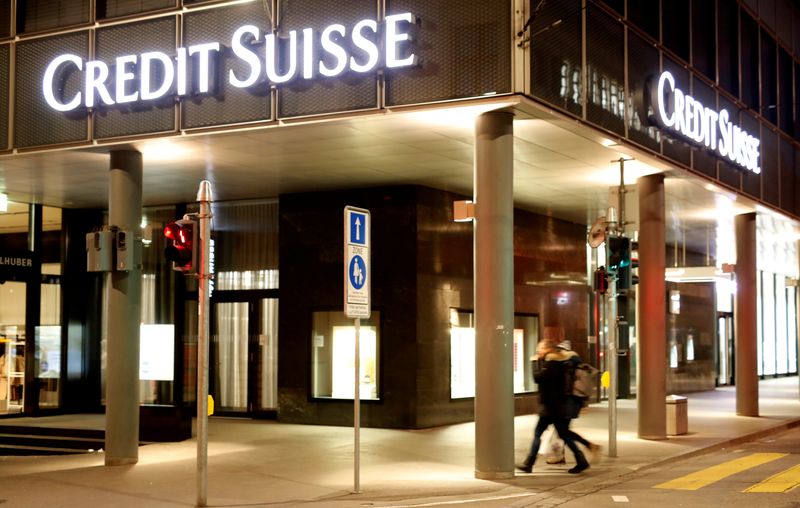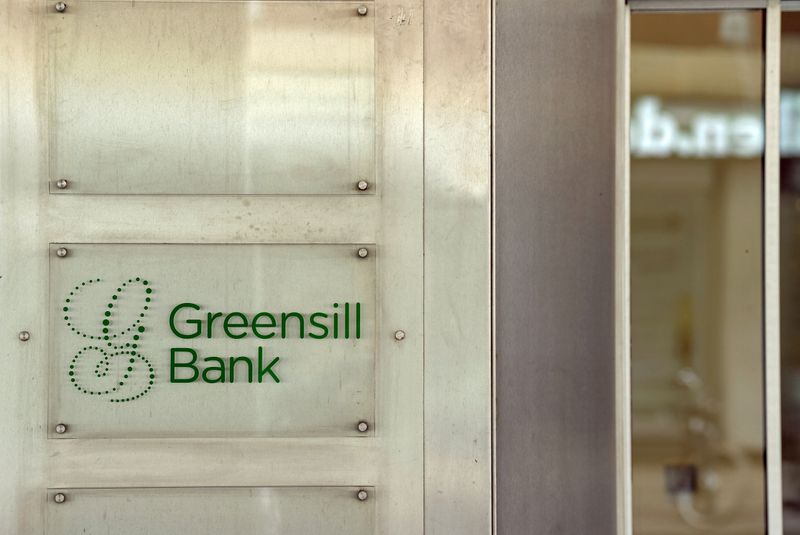(This March. 10 story corrects paragraph 12 to say Tokio Marine bought a unit from Insurance Australia Group, not bought Insurance Australia Group)
ZURICH/TOKYO (Reuters) – Credit Suisse faces questions from regulators and insurers as it grapples with the fallout from the collapse of $10 billion worth of funds linked to British financial services firm Greensill Capital.
The Swiss bank has hired external firms to help with their inquiries in the wake of Greensill Capital’s insolvency, a source familiar with the matter said on Wednesday.
Greensill’s insolvency has had ramifications for the world of trade finance, threatening companies which relied on its platform to receive faster payment for the goods they had supplied to larger entities.
Taulia, a San Francisco-based financial technology company that had worked closely with Greensill, said on Wednesday it had secured more than $6 billion of funding from a consortium led by JPMorgan to ensure its customers retained access to cash.
The Wall Street bank provided $3.8 billion of an overall $6 billion funding programme, which was also backed by UniCredit, UBS and BBVA.
Meanwhile, the head of Credit Suisse’s European asset management arm, which sold the Greensill-linked supply chain finance funds to investors, temporarily stood aside along with two colleagues, the bank said in a memo.
Credit Suisse, which was a key source of funding for the speciality finance firm, selling securities created by Greensill to investors via its asset management arm, is also taking steps to recover a $140 million loan in Australia.
The supply-chain financier Greensill began to unravel last week after losing insurance coverage for its debt repackaging business, prompting Credit Suisse to freeze funds linked to it.
Switzerland’s second-largest bank has hired the external firms in order to expedite the process of returning liquidation proceeds from the funds to investors, the source told Reuters.
Credit Suisse has so far made $3.05 billion worth of payments to investors. It has said further liquidation proceeds will be paid out “as soon as practicable”.
There are questions over the insurance contracts that underpinned Greensill’s securities, which were meant to protect investors in the event of a default.
Japanese insurer Tokio Marine, which provided $4.6 billion of coverage to Greensill credit notes through an Australian unit, said that it was investigating the validity of those policies, which it inherited when it bought the unit from Insurance Australia Group in 2019.
A source familiar with the situation said the policies were directly linked to the $10 billion Credit Suisse funds.
Credit Suisse said in a note to investors on Tuesday it had not been informed of any insurance cancellation “until very recently,” and that existing policies from Insurance Australia had remained unchanged.
The bank declined comment on the Tokio Marine probe.
If Greensill’s lending practices did not meet standards laid out in the insurance contract or were inconsistent with normal accounting rules, then an insurer would have grounds to challenge whether coverage applied, supply chain experts have said.
Greensill declined to comment.
“We have concerns about the validity of all Greensill policies and are conducting an investigation,” Tokio Marine spokesman Tetsuya Hirano said.
Hirano said that the $4.6 billion worth of coverage attributed to Tokio Marine Holdings in court filings did not reflect the likely loss. He declined to comment further.
In Germany, where Greensill runs a bank, financial regulator BaFin has filed a criminal complaint with prosecutors in Bremen, where it is based. The precise details are not known.
BLOW FOR CREDIT SUISSE CEO
The funds’ troubles are a blow for Credit Suisse boss Thomas Gottstein, who became chief executive in the aftermath of a spy scandal and just as the coronavirus crisis struck.
The asset management unit behind the Greensill strategy was hit by a large impairment charge on a hedge fund investment in the fourth quarter.
Credit Suisse said in a memo sent to employees on Wednesday that Michel Degen, head of asset management in Switzerland and the EMEA region, was temporarily stepping aside along with managers Luc Mathys and Lukas Haas.
Reuters could not immediately reach Degen, Mathys or Haas for comment. According to their LinkedIn profiles, Mathys ran fixed income at the division and Haas worked in credit risk management. Haas was listed as the fund manager for some of the Greensill funds according to various fund websites.
Meanwhile in Australia, two people familiar with the matter said that Credit Suisse had appointed receivers to recover a bridging loan to a Greensill company.
Credit Suisse was advising Greensill on a potential IPO last year and had lent on expectations the $140 million would be repaid when it listed, one of the people said.
Credit Suisse declined to comment and Greensill did not respond to requests for comment.
The impact of Greensill’s insolvency is also being felt at its largest client, GFG Alliance, an umbrella company for metal tycoon Sanjeev Gupta’s network of steel, aluminium and energy companies.
A spokesman said on Wednesday GFG had appointed an advisory team including boutique advisory house PJT Partners, turnaround advisor Alvarez and Marsal and law firm Norton Rose Fulbright to “support refinancing efforts and in negotiating a standstill agreement with Greensill’s administrator”.
APOLLO TALKS DERAILED
Greensill was initially in talks to sell a chunk of its operating business to Athene Holding – an annuity seller which recently merged with Apollo Global Management.
Yet discussions for a possible M&A deal hit a snag after its tech partner Taulia secured funding from JPMorgan – also one of Taulia’s investors and a key strategic partner – along with other European lenders, sources told Reuters.
Founded in 2009, Taulia works with financial institutions to allow suppliers that use its platform to receive early payments on their delivered goods and services.
The company, led by boss Cedric Bru, said the credit facility would help clients that formerly relied on Greensill funding to keep receiving their payments.
“Following the well-documented challenges faced by Greensill in recent weeks, Taulia has been working closely with its funding partners to ensure its formerly Greensill-funded programs have continued access to liquidity,” the company said in a statement.
Taulia had previously expressed concern that any deal between Apollo and Greensill would have affected its own business model, sources had said, which is based on using multiple banks for financing to reduce risk for clients and make them less dependent on a single financial institution.
“Taulia’s priority, first and foremost, has been to enable businesses both large and small to unlock liquidity trapped in their supply chain in order to invest, operate and thrive,” Chief Executive Bru said.
“In the current environment, with the potential loss of a funder, our commitment to providing choice has become even more paramount.”
(Reporting by Brenna Hughes Neghaiwi in Zurich and Iain Withers in London; Additional reporting by Paulina Duran in Sydney, Makiko Yamazaki in Tokyo and Pamela Barbaglia in London; Writing by Alexander Smith; Editing by Carmel Crimmins and Nick Zieminski)




























